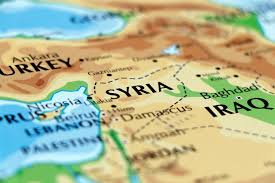In business, location is not just about logistics; it is about opportunity, positioning, and access to markets. Syria, often overlooked in the conversation around regional business expansion, offers a compelling case for companies seeking to build efficient, scalable, and strategic operations across the Middle East.
Situated at the crossroads of Asia, Europe, and Africa, Syria borders Turkey, Iraq, Jordan, Lebanon, and has access to the Mediterranean, placing it in a unique position to serve as a hub for trade, logistics, and regional customer support.
The Geographical Advantage
Syria’s location enables quick and cost-effective access to key markets:
- Turkey to the north provides a gateway to European and Asian supply chains.
- Jordan and Iraq to the south and east open pathways to GCC markets.
- Lebanon to the west offers quick connectivity to the Mediterranean, with shipping access to Europe and North Africa.
- Proximity to Saudi Arabia and the UAE via road networks reduces logistical complexities.
A Historical Trade Crossroad
For centuries, Syria has been a bridge between continents, with its cities like Damascus and Aleppo historically serving as commercial hubs along the Silk Road. This heritage of trade and commerce remains embedded in the business mindset, facilitating smoother market navigation for companies working with Syrian partners.
Cost-Efficient Logistics
Using Syria as a regional base can reduce transportation and shipping costs, particularly for goods moving between Turkey, the Gulf, and North Africa. Road transport from Syria to GCC markets is significantly more affordable than air freight, allowing businesses to maintain competitive pricing.
Additionally, emerging trade discussions between Syria and neighboring countries aim to reduce border delays, which will further enhance operational efficiency for regional distribution centers.
Supporting Regional Customer Operations
Startups and SMEs looking to set up customer support operations in Arabic for the MENA region will find Syria’s native Arabic-speaking, English-proficient workforce a valuable asset. The time zone alignment with GCC markets allows real-time support without delays, and cost efficiencies in talent acquisition allow companies to scale their support teams effectively.
Connectivity Improvements
Syria’s ongoing fiber-optic expansion projects with Jordan and planned 5G pilots are laying the groundwork for stable digital infrastructure, necessary for companies looking to manage regional operations efficiently (source: Petra News Agency).
A Base for Digital Services Expansion
Digital product companies can leverage Syria’s location to test products regionally while maintaining cost efficiency:
- Launching Arabic-localized apps for regional testing.
- Using Syria as a content moderation and management hub for Arabic platforms.
- Setting up engineering support teams for clients across MENA.
Potential Sectors for Regional Operations
E-commerce: Warehousing and fulfillment for Levant and GCC customers.
Digital Services: Arabic content creation, customer support, and app management.
Manufacturing Support: Light assembly or packaging operations for distribution to neighboring markets.
Navigating Regulatory Frameworks
While Syria’s regulatory environment requires local navigation, working with established local consultants and legal experts simplifies the setup process for foreign companies. The Syrian Chamber of Commerce and industry-specific associations can assist in ensuring compliance and understanding incentives for investment.
Building Regional Resilience
In a region where diversification is key, establishing a presence in Syria allows businesses to:
- Reduce over-reliance on high-cost markets.
- Build redundancy in regional operations.
- Explore new market segments within Syria.
References
- Petra News Agency, Fiber Collaboration Announcements 2025.
- Syrian Ministry of Economy and Trade, Trade Reports 2024.
- World Bank Logistics Performance Index Regional Reports.
Conclusion
For businesses looking at the Middle East with long-term vision, Syria offers a rare blend of geographic positioning, market accessibility, and cost efficiencies that can drive regional expansion. By leveraging Syria’s location, companies can reduce costs, improve delivery timelines, and build a resilient regional presence that supports sustainable growth.
Now is the time to reimagine the Middle East’s business map and recognize the strategic edge Syria can bring to your operations.
Anas Abbar CEO, 7awi Media Group
Contributor, UgaritLabs



